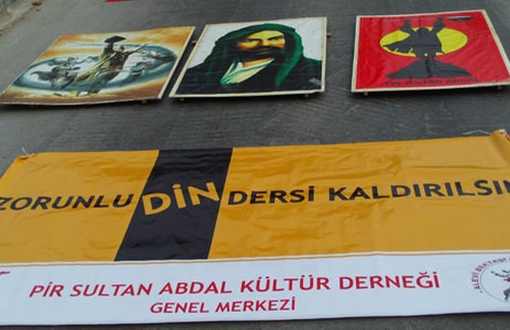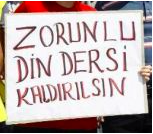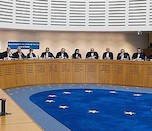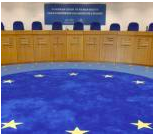Issuing a ruling on the complaint of 14 applicants, the European Court of Human Rights warned Turkey on the religious freedoms, saying that Turkey had to remedy the situation without delay, in particular by introducing a system whereby pupils could be exempted from religion and ethics classes without their parents having to disclose their own religious or philosophical convictions”.
On 2 February 2011, applicants Mansur Yalçın, Namık Sofuoğlu, Serap Topçu, Ali Yüce, Ali Kaplan, Eylem Onat Karataş, Hüseyin Kaya, Sevinç Ilgın, İsmail Ilgın, Cafer Aktan, Hakkı Saygı, Kemal Kuzucu, Yüksel Polat and Hasan Kılıç applied to ECHR, saying that Turkey violated their right to education according to Article 2 of Protocol No. 1 (right to education).
“Turkey had to remedy the situation without delay, in particular by introducing a system whereby pupils could be exempted from religion and ethics classes without their parents having to disclose their own religious or philosophical convictions,” the court ruling cited.
The ruling coincided with the recent complaints that Alevi students were allegedly assigned to Sunni religious schools randomly in the education year of 2014 - 2015.
When their request for change was rejected…
On 22 June 2005 the applicants asked the Ministry of Education to initiate a consultation process with leading members of the Alevi community with a view to overhauling the curriculum of the religion and ethics classes to include Alevi culture and philosophy.
“Being Alevi is not belief but culture”
After being notified of the decision to reject their proposal in a letter from the Directorate of Religious Education attached to the Ministry of Education, the applicants and 1,905 other people challenged that decision in the Ankara Administrative Court.
An expert report by a professor of Islamic studies and lecturers in education and religious sociology on the textbooks used in religion and ethics classes was included in the case file.
In a judgment of 1 October 2009 the Ankara Administrative Court found against the applicants, relying on the expert report. Their subsequent appeal on points of law was dismissed by the Supreme Administrative Court in a judgment served on 2 August 2010, which held that the judgment at first instance was in conformity with the relevant procedure and laws.
ECHR: “System still doesn’t base on respect to beliefs”
Relying on Article 2 of Protocol No. 1 (right to education), the applicants complained that the content of the compulsory classes in religion and ethics in schools was based on the Sunni understanding of Islam. Mansur Yalçın, Yüksel Polat and Hasan Kılıç also relied in this connection on Article 9 (right to freedom of thought, conscience and religion), in conjunction with Article 14 (prohibition of discrimination).
With a panel including Işıl Karakaş from Turkey, the court underlined that Turkey has yet to adapt its education system on the basis of respect to families’ beliefs.
The Court concluded that the Turkish education system was still inadequately equipped to ensure respect for parents’ convictions, and that there had therefore been a violation of Article 2 of Protocol No. 1 with regard to Mansur Yalçın, Yüksel Polat and Hasan Kılıç; ordering the Turkish state to pay damages to the applicants.
“Turkey was to implement appropriate measures”
Having regard to its finding of Article 2 of Protocol No. 1, the Court considered that it was not necessary to examine the applicants’ complaints under Articles 9 and 14. But the court warned Turkey:
“Turkey was to implement appropriate measures to remedy the situation without delay, in particular by introducing a system whereby pupils could be exempted from religion and ethics classes without their parents having to disclose their own religious or philosophical convictions.” (EÖ/BM).
* Click here to read the article in Turkish.













